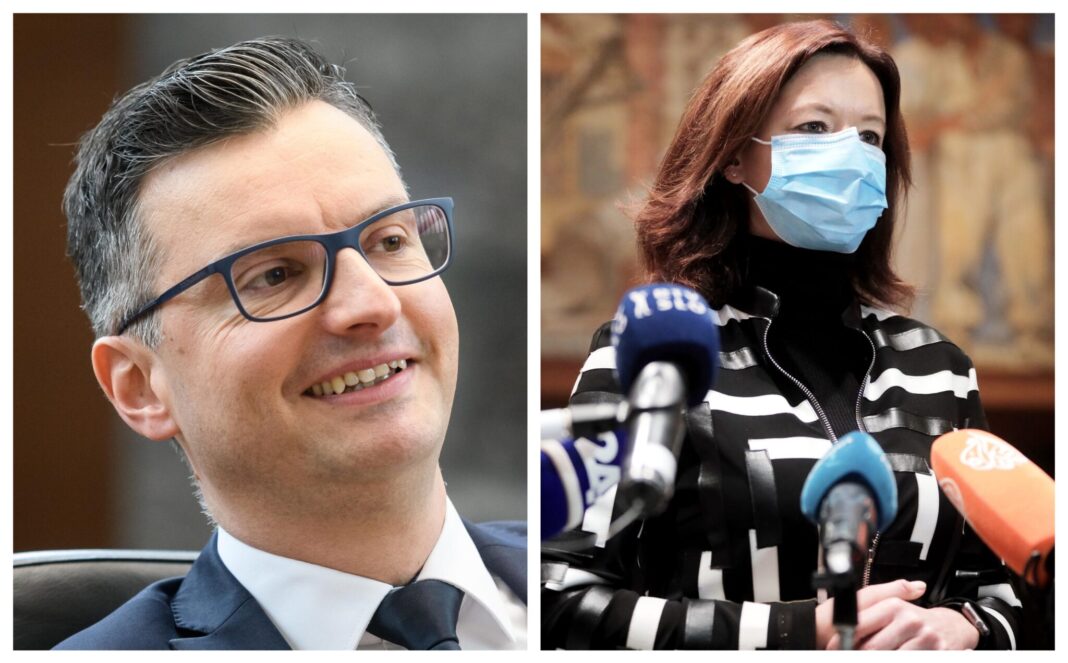By: Sara Rančigaj
As the filing of a no confidence vote led by Karl Erjavec failed, the aforementioned withdrawal of the candidacy became a playing field for shifting the blame to those who had been infected with coronavirus. While MP Matjaž Nemec blames the director of Sova, Janez Stušek, for the loss of the opportunity, the opposition would use new rules to change the prime minister, with which they would vote at a distance. In any case, the KUL association will try its best not to admit in public that their candidate does not have support in public nor in the National Assembly.
“We all used to hide, played Man, Don’t Get Angry, Monopoly. Remember those who, when it was not going in their favour, shouted “zapik”; demanded a change of rules in the middle of the game; and if it failed the offended went away and cried out that it was not fair. Some children grow up, others remain rigid blackmailers,” wrote psychologist Kristijan Musek Lešnik this morning. As it turned out, however, his words were prophetic as the KUL coalition’s manoeuvres became more and more akin to changing the rules when someone lost a game where all the players played under the same conditions.
During the epidemic, MPs had to be present and vote to adopt measures worth hundreds of millions of euros. When it comes to the issue of trust in the government and the confirmation of a new prime minister who will lead the country, it is even more important that the vote is conducted correctly and that MPs vote by secret ballot, as stipulated in the Rules of Procedure of the National Assembly. In contrast, Fajon would change this regulation when it comes to the question of their candidate for prime minister – something similar did not occur to her before.
“It is high time that the National Assembly changes the rules of procedure and allows MPs to vote safely in the event of illness,” wrote Tanja Fajon. She believes that Erjavec initiated a serious debate in the National Assembly with the decision to withdraw, but as can be seen from the coalition, it is mainly a criticism of shifting the blame to others. “It is hard to understand that the institution is still so cumbersome. In the European Parliament, they allow us to work normally,” said an indignant Fajon, who did not recall this for other measures after nine months of the epidemic.
State Secretary and former Minister Vinko Gorenak reacted critically to Fajon’s statements. As he points out, the MPs of the coalition made this proposal in early April 2020, but their MPs were against it. But when the votes come in useful, different rules obviously apply.
Marjan Šarec also wants to show the damage that Erjavec caused to the public by revoking the vote of no confidence. “The withdrawal of constructive distrust has served its purpose. The leadership of the National Assembly has begun to work on how to enable secret ballots outside the National Assembly as well,” wrote Šarec, who describes the situation more as an attempt to operate the National Assembly rather than trust in their candidate. For the future, however, he is certain that if the state election commission can enable this during the epidemic, the National Assembly will have to know how to do this as well. However, it seems that Šarec does not believe that live voting will succeed at all. “Once this is enabled, it will be re-filed and the process will be carried out.”
According to Zorčič, the proposal of Fajon and Šarec cannot be resolved overnight
The vote of no confidence in the government is secret, and the latest changes to the Rules of Procedure of the National Assembly only allow for public participation in a remote session. The President of the National Assembly, Igor Zorčič, reminded that the adoption of such changes to the Rules of Procedure last year was accompanied by a number of concerns regarding security and democracy. “No one even dared to think of secret electronic voting, as this is not the case in other countries either. And especially not in order to elect the Prime Minister via computer,” Zorčič said in a statement in the National Assembly. He noted that such a solution raises a number of security and legal issues.
According to Zorčič, at today’s conference they agreed to examine the possibilities that would enable secret distance voting. One possibility is for the electoral commission to approach those MPs who cannot vote in the National Assembly, and the other possibility is for the MPs to somehow be allowed to vote at least in the vicinity of the National Assembly. According to Zorčič, both require a change in the Rules of Procedure, but a two-thirds majority in the voting is needed to change it. Zorčič believes that they will not be able to succeed overnight with the proposed solution, as they have not succeeded so far. Even the ordinary distance voting has proven controversial in the past. And the vote on the new prime minister raises a number of other issues, for example in the area of law, ethics, and the epidemic.

